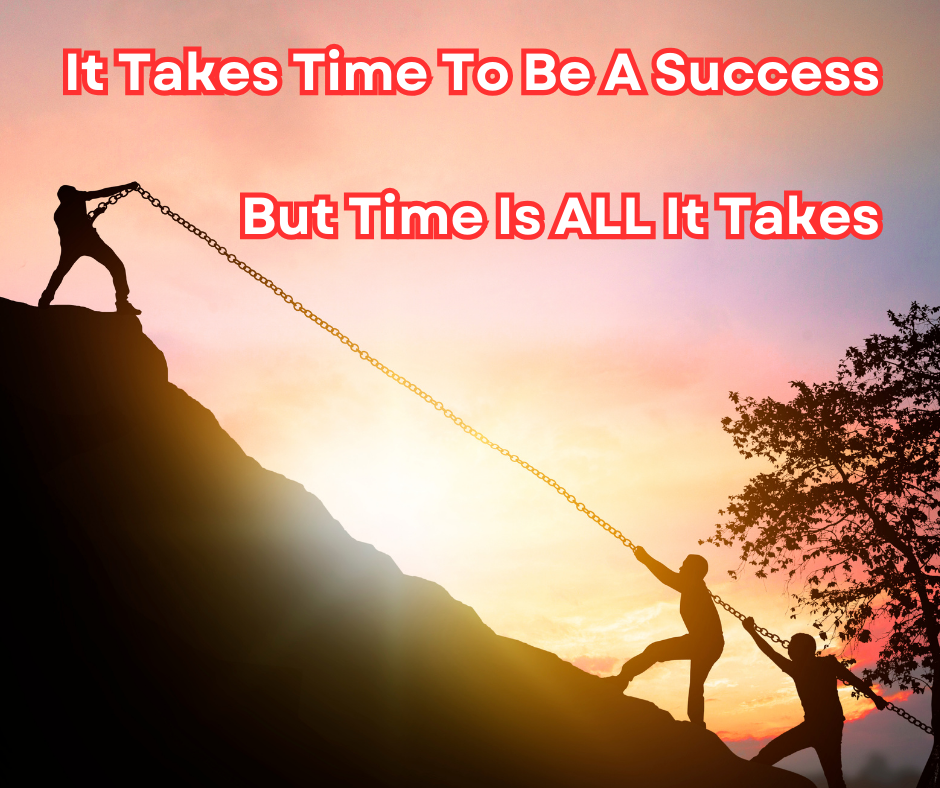The Complex Interplay between Success and Happiness: Unlock the Secrets of a Fulfilling Life
Success and happiness are two intertwining concepts that have captivated the human psyche throughout history. While success is often seen as a measure of achievement and the attainment of goals, happiness is the emotional state that accompanies a sense of contentment and well-being. The relationship between these two dimensions of life is intricate and multifaceted, with various sub-topics shedding light on their intricate connection. This blog article aims to explore the profound relationship between success and happiness, investigating the extent to which happiness predicts success, the phenomenon of success addicts, the significance of viewing failure as a stepping stone to success, and the importance of cultivating a success mindset.
The Elusive Nature of Success and Happiness:
Before diving into the details, it is vital to explore the varying interpretations of success and happiness across different cultures and individuals. Success can be defined in terms of financial achievements, professional accomplishments, personal growth, or contributions to society. Similarly, happiness is different for every individual, encompassing a range of emotions, from joy and fulfilment to contentment and peace. Recognizing the subjective nature of these concepts lays the foundation for appreciating their intricacies.
It must be appreciated that success and happiness are not destinations to be reached, but rather ongoing journeys. Society often conditions us to believe that success and happiness are end goals that can be obtained by following a specific formula or set of guidelines. We are bombarded with messages that promise happiness and fulfilment if we just follow a certain career path or purchase a certain product. However, in reality, success and happiness are not external achievements, but internal states of being that are constantly evolving.
Another reason why success and happiness are elusive is that they are often tied to future expectations. We believe that once we get that promotion or find that perfect partner, we will finally be successful and happy. However, when we do achieve those goals, we find that the feeling of success and happiness is fleeting. We quickly set new goals and start chasing after the next big thing, perpetuating the cycle of always wanting more.

Happiness as a Driver of Success:
Mounting empirical evidence suggests that happiness serves as a crucial predictor of success, challenging the conventional notion that success is the key to happiness. Research demonstrates that individuals who experience higher levels of well-being are more likely to exhibit qualities conducive to success, such as optimism, resilience, creativity, and strong interpersonal relationships. Happiness fosters enhanced cognitive abilities, and when we are happy, neurochemicals such as dopamine and serotonin are released in our brains, promoting positive emotions, boosting our energy levels, and enhancing our ability to think critically and solve problems effectively. This heightened cognitive functioning allows us to approach challenges with a more positive mindset, enabling us to find innovative solutions and overcome obstacles with greater ease.
Beyond cognitive advantages, happiness also influences our interpersonal relationships, which play a crucial role in achieving success. When we are genuinely happy, we radiate positive energy, making us more approachable and encouraging collaboration with others. Positive and authentic relationships are essential for professional growth, as they facilitate networking, provide support and resources, and open doors to new opportunities. Moreover, happiness is contagious, and by sharing our positive experiences with others, we can inspire and motivate them to pursue their own goals, creating a ripple effect that can lead to collective success.
Success and Happiness Addicts: A Trap in Disguise:
Success addiction is the relentless pursuit of achievements, often at the expense of personal well-being, relationships, and genuine happiness. It is characterized by an insatiable hunger for external validation and constantly seeking more accomplishments to sustain one’s sense of worth and purpose. Success addicts are driven by fear – the fear of failure, the fear of being deemed unworthy, and the fear of not living up to societal expectations.
Similarly, happiness addiction is an obsession with feeling good all the time. It is the relentless pursuit of pleasure, positive experiences, and avoiding discomfort or pain. Happiness addicts are constantly searching for the next high, the next source of joy, and the next opportunity to escape negative emotions. They believe that true happiness lies in external conditions rather than internal contentment.
At first glance, being a success or happiness addict may seem harmless, even desirable. After all, who wouldn’t want to achieve success and be happy? However, the problem arises when these pursuits become compulsive and overwhelming, leading to a distorted and unsustainable way of living.
One of the most significant dangers of success and happiness addiction is the constant need for external validation and approval. Success addicts derive their self-worth solely from their achievements, leading to a fragile sense of identity that can crumble at the slightest setback or failure. Happiness addicts, on the other hand, are always on the lookout for external sources of happiness, never realizing that true happiness comes from within.
Failure as a Crucible of Success and Happiness:
As one reflects upon the complex relationship between failure, success, and happiness, it becomes clear that failure is not the enemy but an invaluable ally on the path to personal growth and fulfilment. From a psychological and philosophical standpoint, embracing failure aligns with the principles of resilience, determination, and a growth-oriented mindset. We must constantly and consistently recognize that success and happiness are not only destination points but also deeply intertwined with the journey we undertake.
Akin to the old adage, “failure is the stepping stone to success,” setbacks and failures are inevitable components of the journey towards achieving meaningful success. The ability to embrace failure as an opportunity for growth, learning, and re-evaluation is what differentiates individuals who rebound and ultimately succeed. Numerous successful individuals have faced significant failures and setbacks, eventually leveraging those experiences to propel them towards even greater accomplishments. Failure should be viewed as an invaluable teacher, instilling resilience, grit, and determination, ultimately fuelling future success.
Cultivating a Success and Happiness Mindset:
Success and happiness are two often sought-after goals in life. We all have different ways of defining and measuring these achievements. However, what many people fail to realize is that cultivating a success and happiness mindset is paramount to actually achieving them.
Our mindset plays a crucial role in shaping our thoughts, actions, and ultimately, our outcomes in life. It directly influences how we perceive and react to challenging situations, setbacks, and even the joyous moments. Thus, developing a positive and growth-oriented mindset is crucial for fostering success and happiness.
Here are some strategies to help you cultivate a success and happiness mindset:
1. Practice gratitude: Gratitude is a powerful tool to shift your perspective and focus on the positive aspects of your life. Take a few moments each day to reflect on the things you are thankful for, no matter how small they may be. This practice cultivates a positive outlook and boosts your overall wellbeing.
2. Set realistic goals: Goals serve as a roadmap for success, but they need to be achievable and attainable. Set specific, measurable, and time-bound goals that align with your values and aspirations. Break them down into manageable steps to maintain motivation and momentum. Celebrate your progress along the way, no matter how small.
3. Surround yourself with positive influences: Your environment greatly impacts your mindset. Surround yourself with like-minded individuals who inspire and uplift you. Engage in discussions, join communities, or seek out mentors who encourage personal growth and success. Their positive energy will fuel your own aspirations.
4. Practice self-care: Self-care is not selfish; it is essential for overall wellbeing. Prioritize activities that bring you joy, reduce stress, and enhance your mental and physical health. This can include exercising, practicing mindfulness, getting enough sleep, or indulging in hobbies. Taking care of yourself equips you with the energy and resilience needed to pursue success and happiness.
5. Challenge your limiting beliefs: We often hold beliefs that limit our potential or hinder our progress. Identify negative self-talk, limiting beliefs, and any recurring patterns that may be holding you back. Challenge those beliefs by replacing them with empowering and positive affirmations. Believe in your own abilities and envision success.
6. Embrace a growth mindset: A growth mindset is believing in your potential for growth and development. Rather than viewing abilities and intelligence as fixed traits, embrace the idea that skills and talents can be developed through effort and dedication. Embrace challenges, seek opportunities to learn, and never stop growing.
7. Practice resilience: Life is full of ups and downs, and setbacks are a natural part of the journey. Develop resilience to bounce back from adversity and keep moving forward. Cultivate a positive outlook and develop coping mechanisms such as reframing negative situations, seeking support, and practicing self-compassion.
Cultivating a success and happiness mindset is a lifelong journey. It requires conscious effort, self-reflection, and perseverance. By adopting these strategies, you can gradually reshape your mindset, increase your overall happiness quotient, and pave the way for success in all areas of your life.
Balancing Success and Happiness – Where Perspective Matters:
While success and happiness are intertwined, finding the right balance is critical. It is crucial to remember that success is not a guarantee of happiness, nor is happiness solely contingent on external achievements. Achieving a harmonious equilibrium between success and happiness requires a holistic approach that considers personal values, relationships, self-care, and overall life satisfaction. True success encompasses subjective measures that align with an individual’s core values and personal definitions of happiness, rather than solely relying on societal expectations.
The intricate relationship between success and happiness is a timeless pursuit that has interested humanity for centuries. The evidence provided by empirical research, scholarly studies, and real-life examples highlights the significance of happiness as a driver of success, the dangers of success addiction, the transformative power of failure, and the importance of cultivating a success mindset. By understanding the interplay between success and happiness, individuals can navigate their aspirations more deliberately, striving for a fulfilling life that acknowledges both external achievements and internal contentment. Ultimately, the pursuit of success and happiness is a personal journey that should align with individual values and aspirations, rather than the dictates of social norms.














